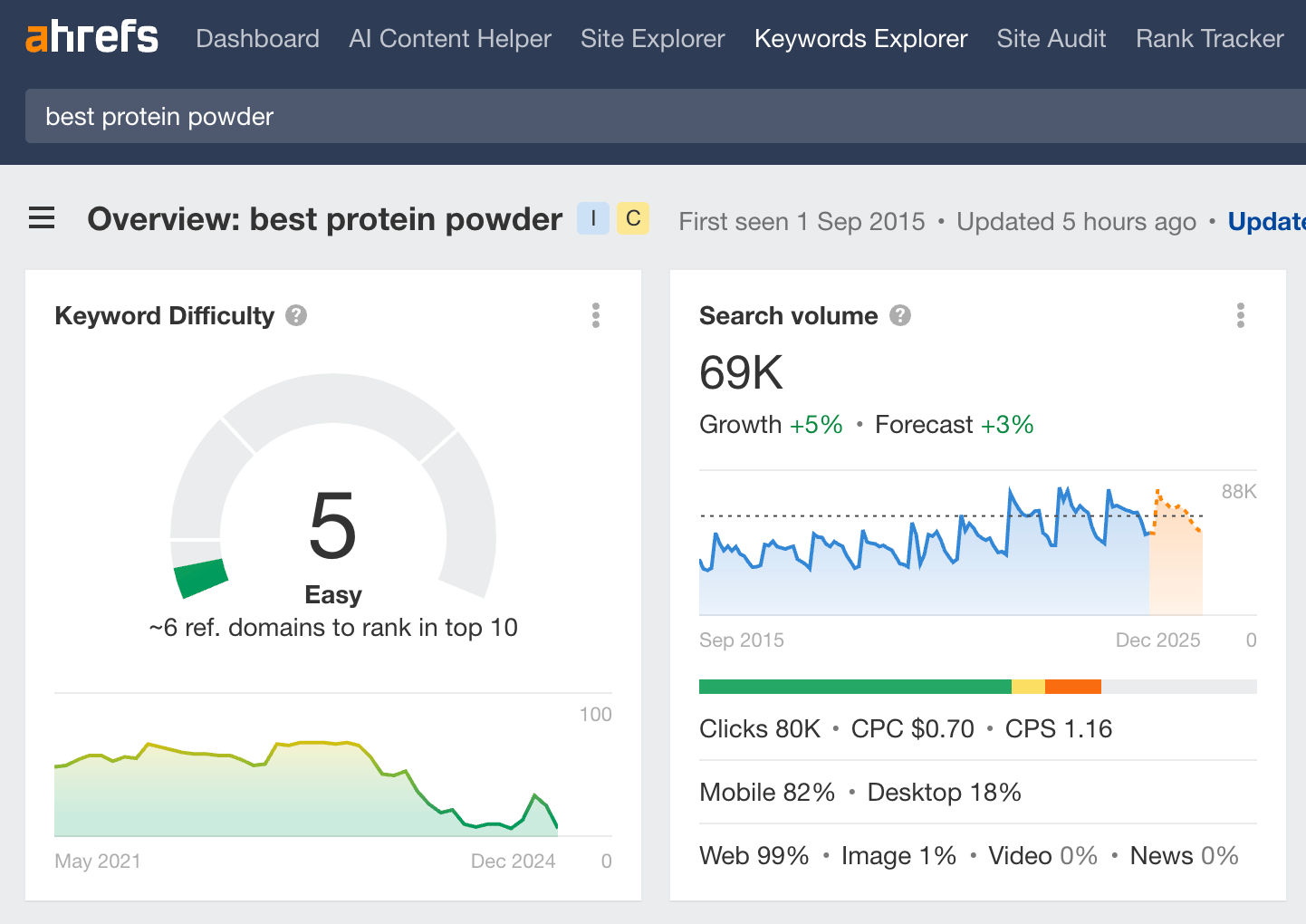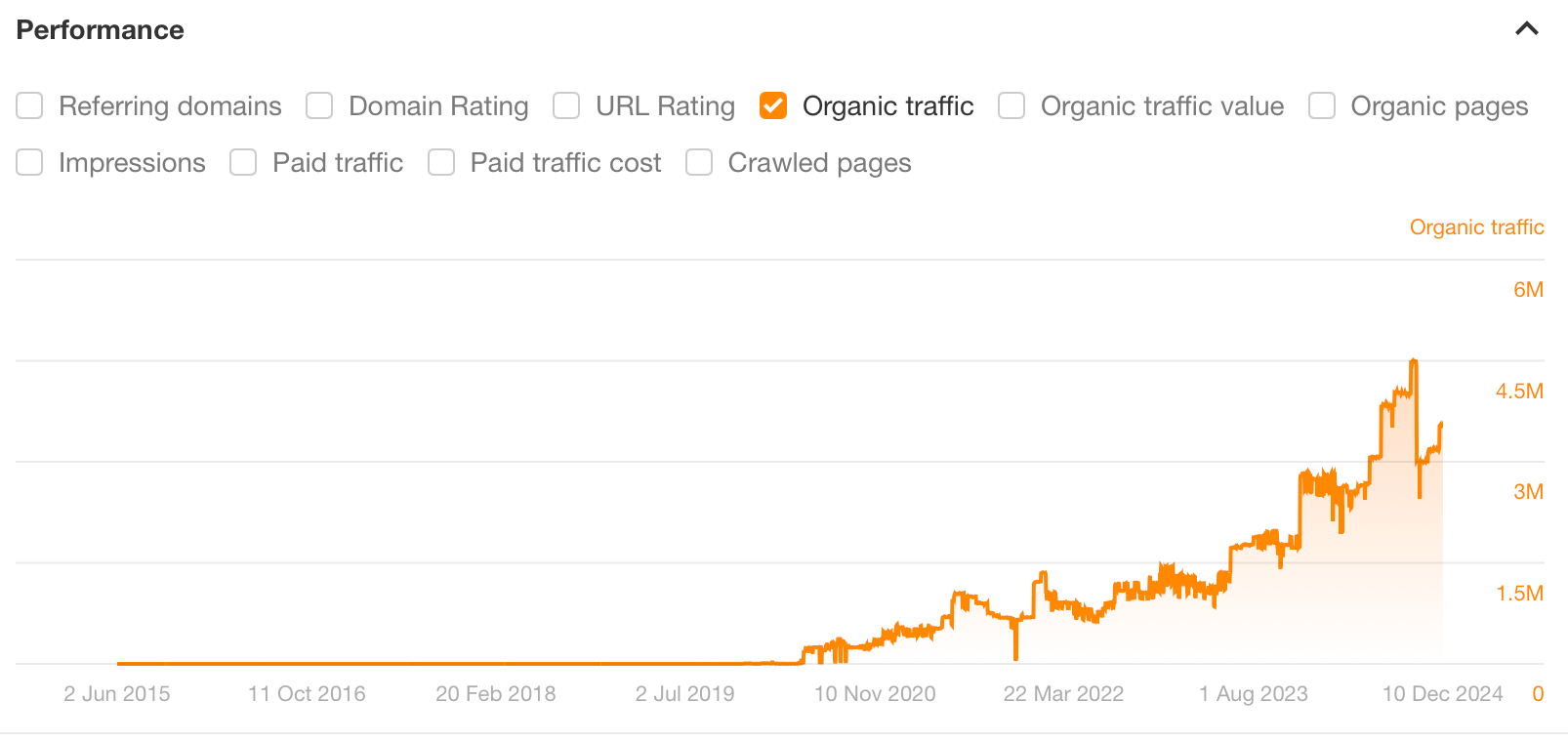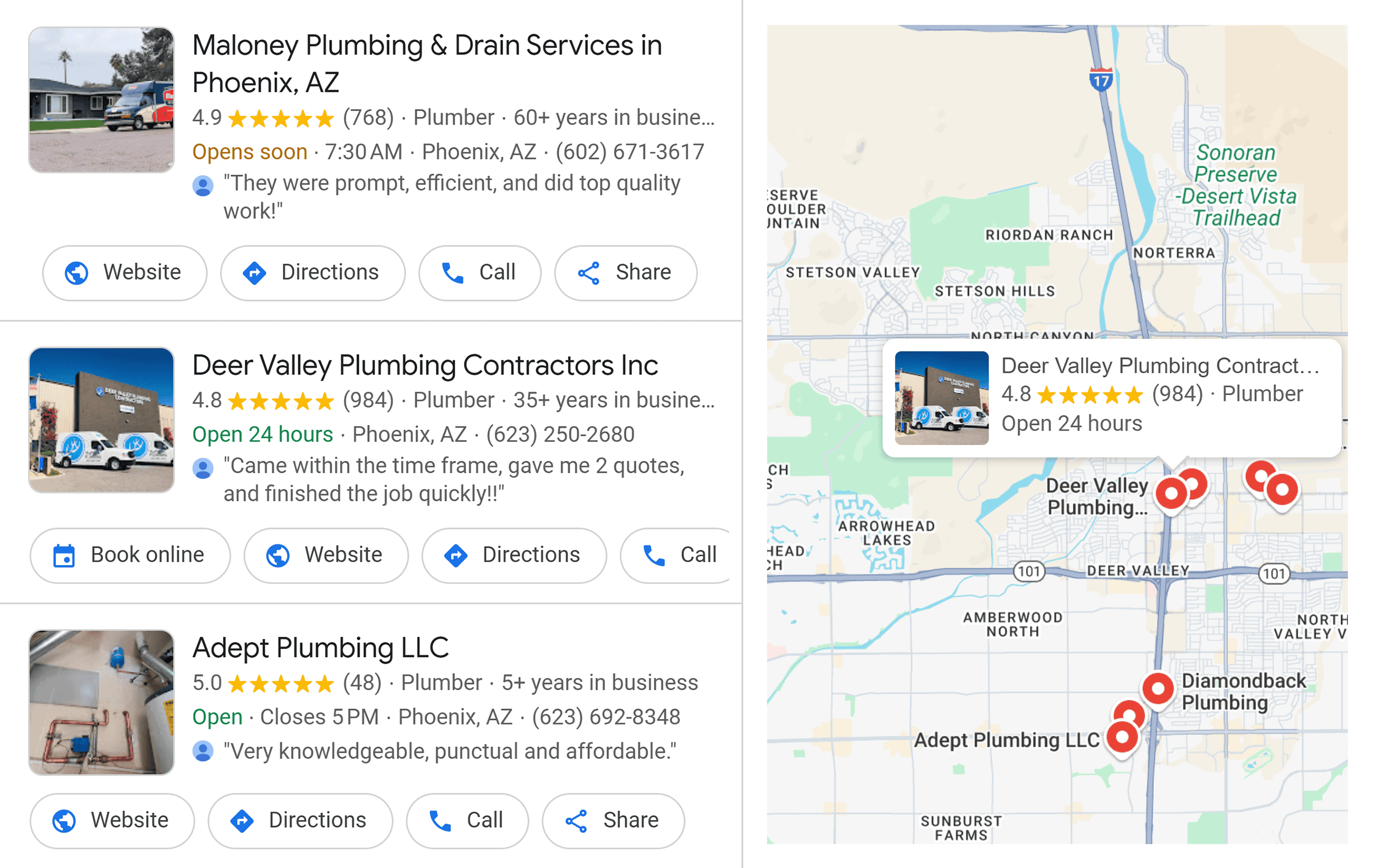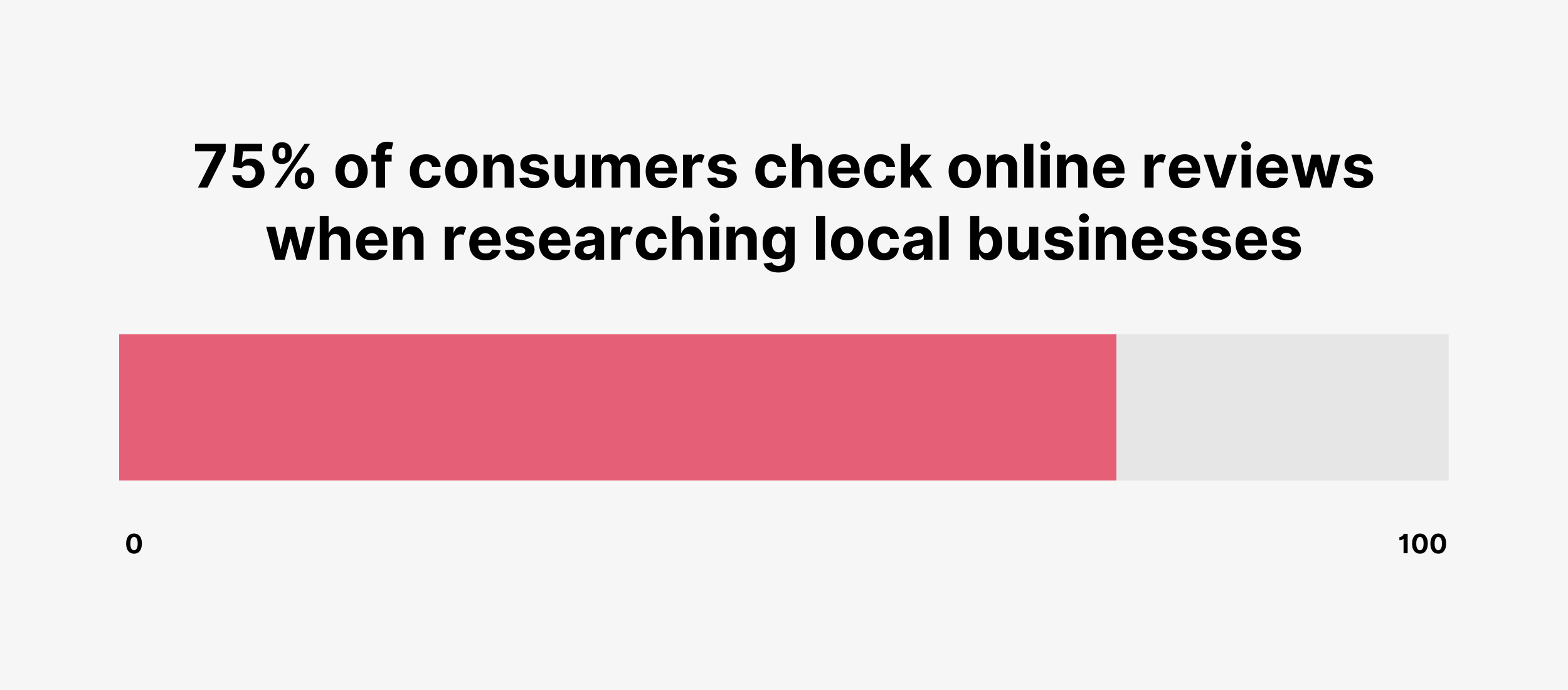
Online reviews have become an integral part of the buyer journey. From physical products to hotels and restaurants, customers increasingly rely on user-generated content to make informed decisions.
In this blog post, you’ll find up-to-date online review statistics, where we’ll uncover the importance of customer reviews, highlight the most popular online review platforms, and cover some insights about fake reviews.
Click for a specific section:
Online Review Statistics (Highlights)
- 75% of consumers read online reviews when researching businesses.
- Facebook and Instagram are the most popular social media platforms for reading customer reviews.
- Around 7 in 10 consumers state consumer reviews at least “frequently” influence their purchase decisions.
- 75% of consumers are concerned about fake reviews.
- 93% of customers expect a response from businesses to their online reviews.
General Online Review Statistics
More than 7 in 10 consumers claim to “always” or “regularly” read online reviews when looking for local businesses (BrightLocal)
75% of consumers check online reviews when researching local businesses. Only 3% of consumers claim to never read online reviews.
Here’s a complete breakdown of how often consumers turn to reading online reviews:
| Frequency | Share of Consumers |
|---|---|
| Always | 33% |
| Regularly | 42% |
| Occasionally | 22% |
| Never | 3% |
61% of consumers check 2-3 review sites before making a decision (BrightLocal)
61% of consumers rely on 2-3 sites to check online reviews when researching local businesses. Only 16% of customers typically use 4 or more review sites. Using more than 5 review sites or apps is fairly uncommon, where only 7% of respondents opted for that option.
7 in 10 American consumers say it’s rare for them to visit a new business without reading online reviews first (Yelp)
70% of surveyed respondents claim it is uncommon for them to try a new business without checking consumer reviews first. The same survey found that 76% of consumers say they read more reviews than ever before.
66% of US consumers state that they are “frequently” or “very frequently” influenced by customer reviews during their purchase journey (Trustpilot)
The vast majority (66%) of consumers claim that consumer reviews “often” or “very often” influence their purchase decisions, that’s more than any other source of information.
Nearly 4 in 10 consumers use reviews as a main channel for online brand research (DataReportal)
37.2% of internet users aged 16 to 64 claim to use online reviews as a primary source of information for brand research, which is more than product or brand websites (33.3%) or price comparison sites (26.8%).
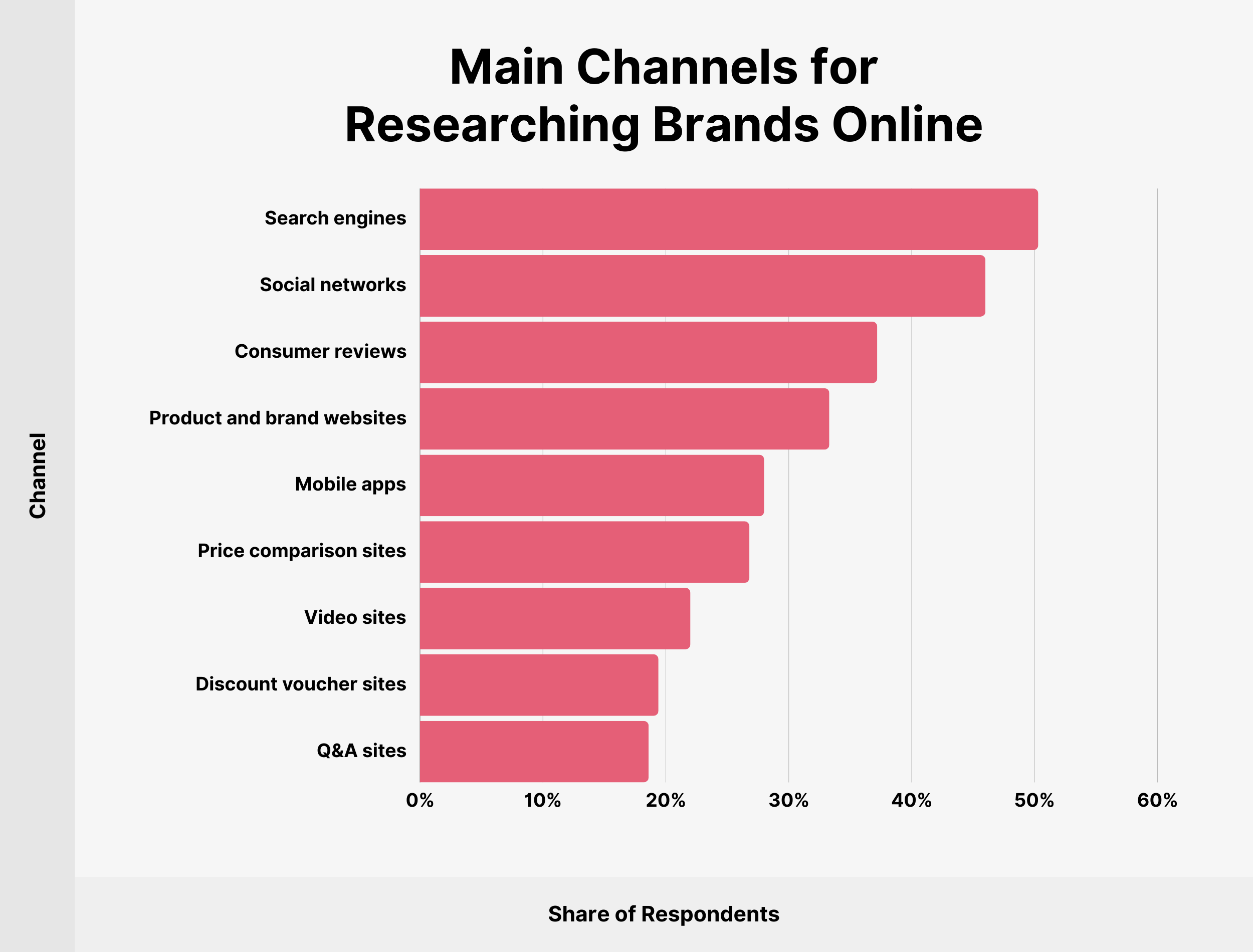
Here’s a complete breakdown of the main channels when researching brands online:
| Channel | Share of Respondents |
|---|---|
| Search engines | 50.3% |
| Social networks | 46% |
| Consumer reviews | 37.2% |
| Product and brand websites | 33.3% |
| Mobile apps | 28% |
| Price comparison sites | 26.8% |
| Video sites | 22% |
| Discount voucher sites | 19.4% |
| Q&A sites | 18.6% |
54% of consumers would consider using a business with a minimum rating of 4 stars (BrightLocal)
According to recent findings, more than half (54%) of consumers would only consider a business with a star rating between 4 and 5 stars (on a 5-star scale). Only 5% of survey respondents say that star rating doesn’t impact their decisions.
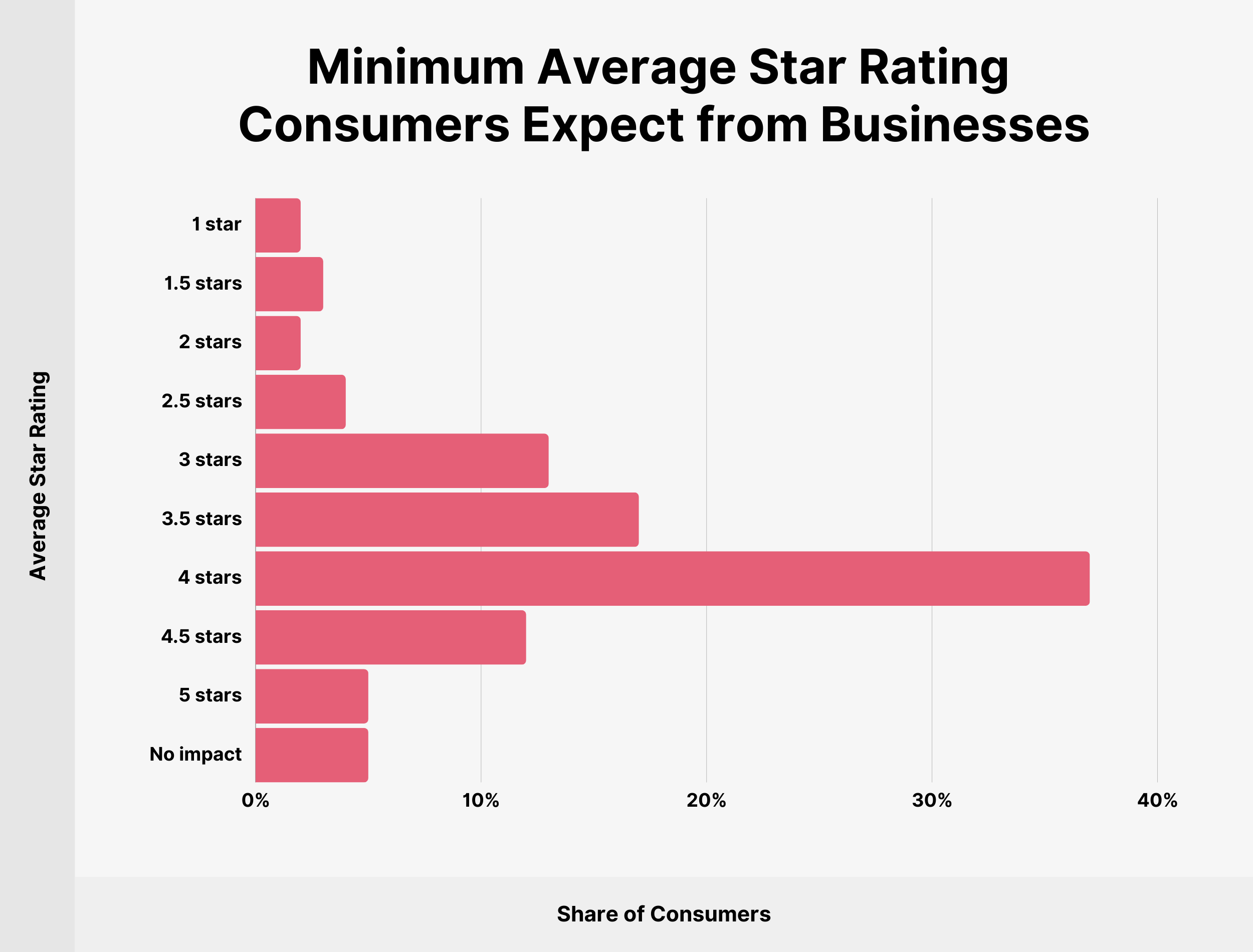
Here’s a complete breakdown of the minimum average star rating consumers expect from businesses:
| Average Star Rating | Share of Consumers |
|---|---|
| 1 star | 2% |
| 1.5 stars | 3% |
| 2 stars | 2% |
| 2.5 stars | 4% |
| 3 stars | 13% |
| 3.5 stars | 17% |
| 4 stars | 37% |
| 4.5 stars | 12% |
| 5 stars | 5% |
| Star rating does not impact decision | 5% |
59% of consumers expect a response to their online review within 3 days (BrightLocal)
It is expected by 93% of consumers that businesses will respond to their reviews. More than half (59%) of consumers expect a fast response within three days of the review being posted.
70% of customers say they’re more likely to leave a review when the business account is responsive to reviews (Yelp)
Having an engaged business account on the review platform helps increase the number of customer reviews and improve online visibility. 70% of individuals who read reviews are more inclined to write a review when they see that the manager takes the time to respond to customer online feedback.
Popular Online Review Platforms
81% of consumers use Google to check online reviews about local businesses (BrightLocal)
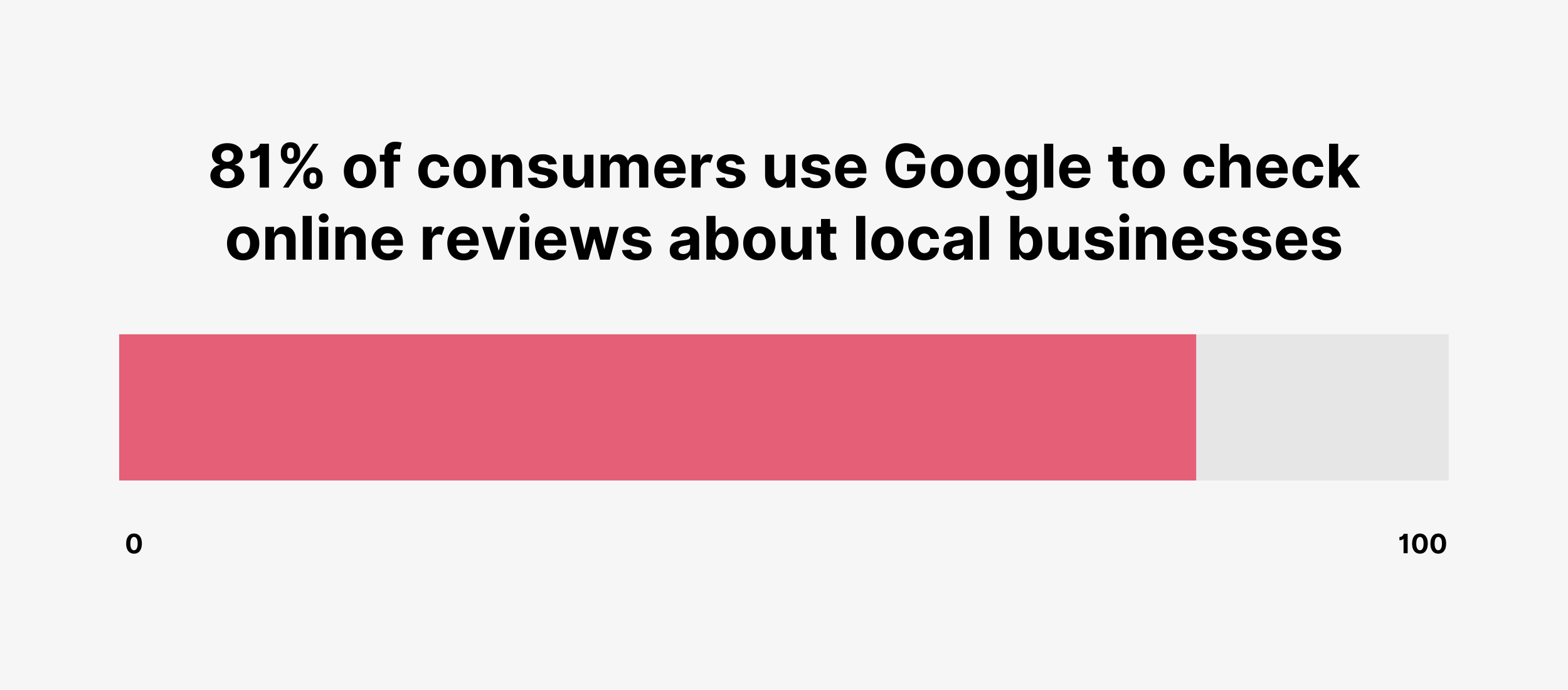
The vast majority (81%) of US consumers turn to Google to evaluate local businesses. In fact, it’s the only platform used by more than half of surveyed consumers.
44% of US consumers use Yelp to find business reviews (BrightLocal)
The percentage of consumers using Yelp for online reviews dropped from 53% in 2022 to 44% in 2024. Despite the decrease in consumer use, Yelp remains one of the top 3 most used platforms for reading online reviews.
Facebook and Instagram are the most used social media platforms for reading online reviews (BrightLocal)
In 2024, 45% of American consumers turned to Facebook to find business reviews. Other popular social media networks among customers for checking online reviews include Instagram (34%) and YouTube (32%).
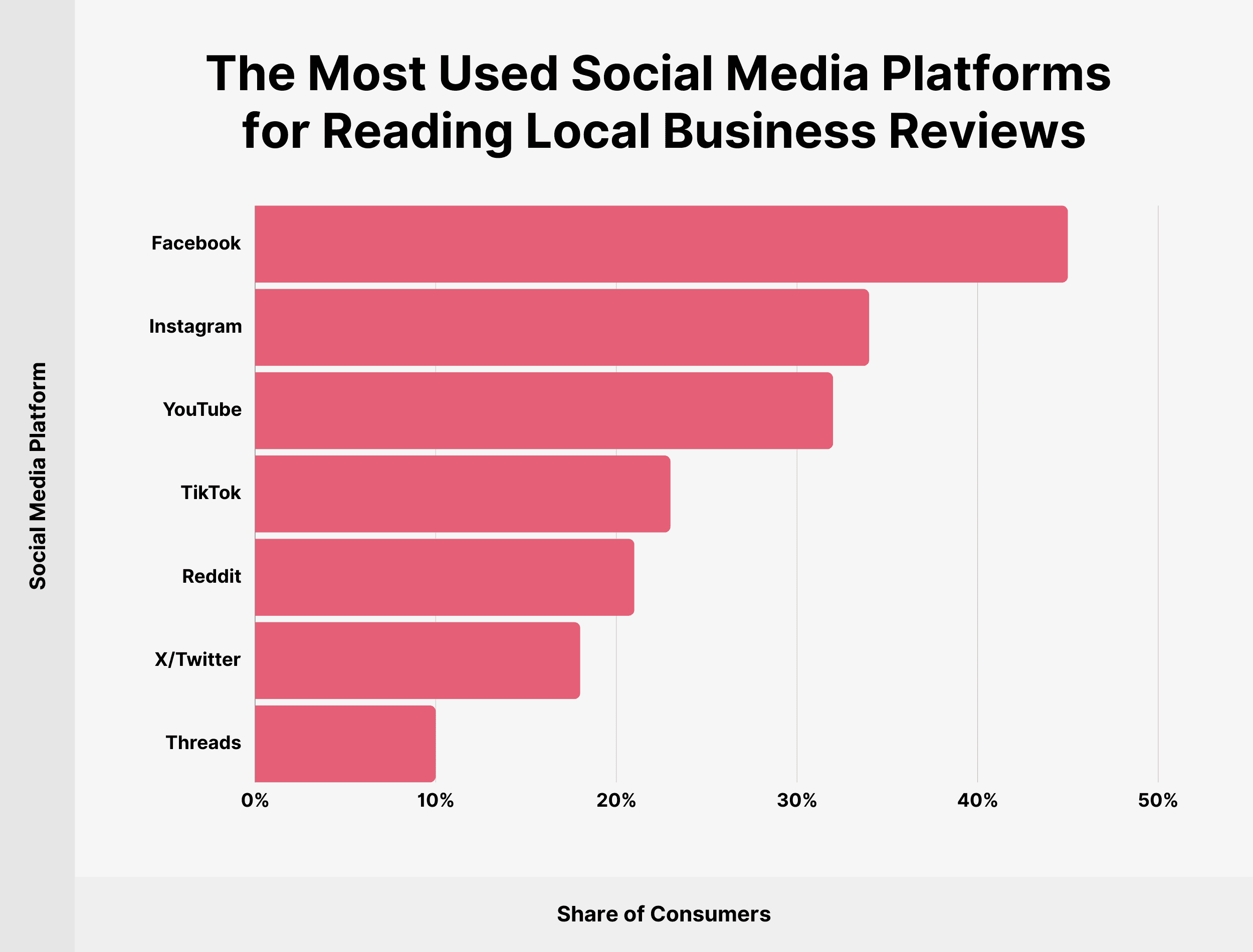
Here’s a complete breakdown of the most used social media platforms for reading local business reviews:
| Social Media Platform | Share of Consumers |
|---|---|
| 45% | |
| 34% | |
| YouTube | 32% |
| TikTok | 23% |
| 21% | |
| X/Twitter | 18% |
| Threads | 10% |
Users on Yelp contributed 22 million reviews on the platform in 2023 (Yelp)
Yelp reported having 22 million new user reviews in 2023, bringing the total number of reviews on the platform to over 287 million. On average, Yelp users leave 60,720 reviews every day.
The number of reviews on Tripadvisor reached 1 billion to date (Tripadvisor)
According to company data, users on Tripadvisor contributed 1 billion reviews and opinions to date. Total number of user reviews and ratings on the platform increased from 320 million in 2015 to more than 1 billion today.
Fake Online Reviews
75% of consumers say they’re concerned about fake online reviews (Bazaarvoice, BrightLocal)
When asked about online reviews, more than 7 in 10 consumers claim they’re concerned about non-legitimate reviews. Moreover, around half of the survey respondents claim that they’re confident they’ve seen fake reviews on major review sites like Amazon (49%), Facebook (40%), and Google (38%).
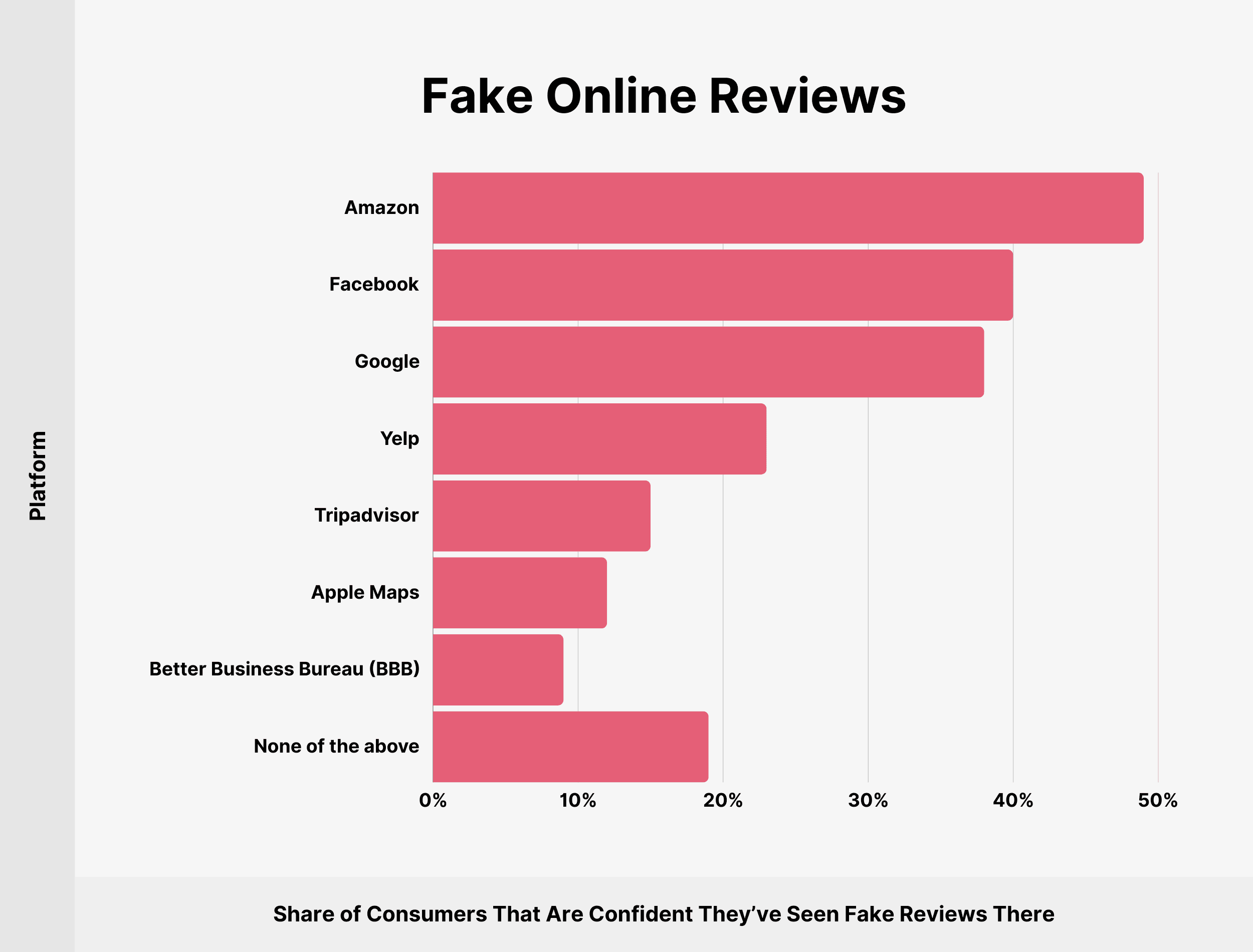
Here’s a full breakdown:
| Platform | Share of Consumers That Are Confident They’ve Seen Fake Reviews There |
|---|---|
| Amazon | 49% |
| 40% | |
| 38% | |
| Yelp | 23% |
| Tripadvisor | 15% |
| Apple Maps | 12% |
| Better Business Bureau (BBB) | 9% |
| None of the above | 19% |
83% of US consumers state they’re more inclined to trust a written instead of a star rating (Yelp)
More than 8 in 10 consumers are more likely to trust reviews with text instead of a star rating without any details. In fact, the average length of a recommended review on Yelp is 471 characters.
Content Copyrights Belong to The Author. All Rights Reserved.
We're A Dallas Digital Marketing Agency That is Experts At Social Media Marketing, Website Design and Emarketing and Promotion.

